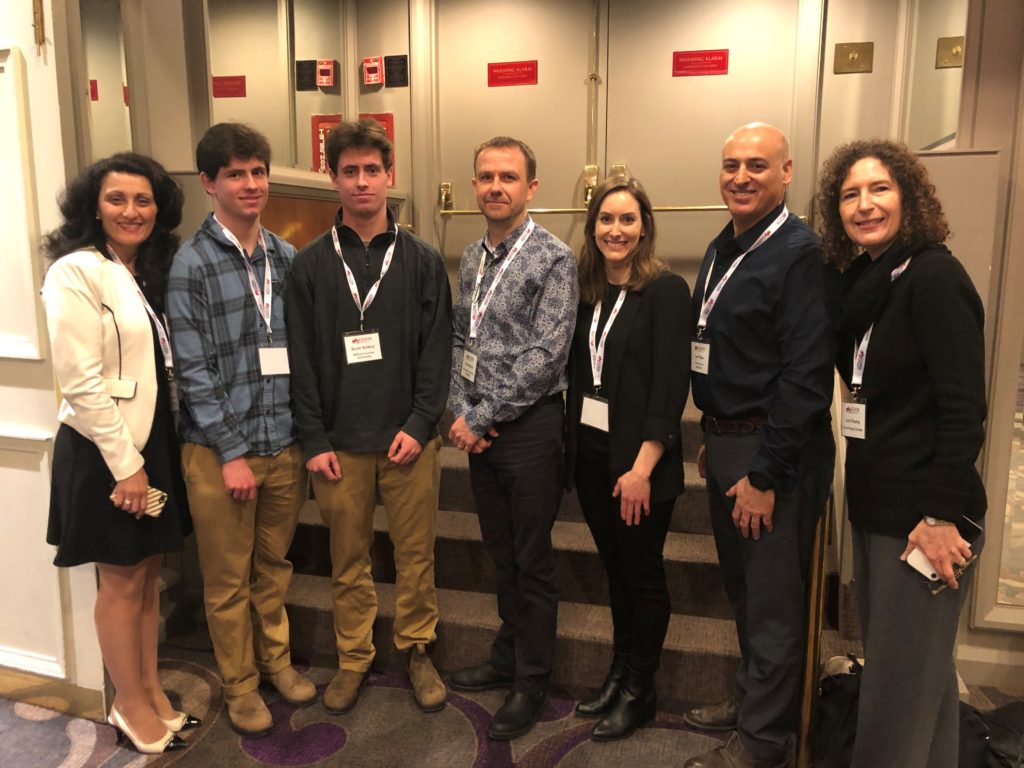Help #MakeFoodAllergyCount with the federal government by contacting your MP by the end of this week. Read about our advocacy for improving student experiences on campus. Get an update on food allergy research, including a study on how mom’s depression in late pregnancy may affect baby’s immune system, and read the latest on the Viaskin Peanut. Plus, check out this month’s mythbuster – can the smell of food cause an allergic reaction?

Advocacy: Contact your MP by the end of this week! Help to #MakeFoodAllergyCount with the federal budget
Your voice is needed to help elevate food allergy as a federal priority. By the end of this week, please reach out to your MP and ask for them to support the pre-budget submission for the National Food Allergy Action Plan.
Advocacy in action: Improving student experiences on campus

At this week’s Canadian College and University Food Service Association (CCUFSA) Winter Workshop, we moderated a session featuring the highlights of new research, not yet released, on food allergy management at university. Our panel discussion, involving foodservice staff and university students, provided different perspectives on key topics such as student disclosure and managing reactions on campus. This session provided helpful insights on student behavior and foodservice operations, and encouraged discussions which can lead to safer campuses for students with food allergy.
Resources for students and staff
- Are you preparing for post-secondary school this fall? Find tips and resources to help confidently manage the transition in our moving out and post-secondary section, and begin planning with our handy checklist.
- Post-secondary professionals – check out our section just for you. There you will find our downloadable guide for institutions on managing food allergies and anaphylaxis, along with other resources and tools. Visit foodallergycanada.ca/campusguide.
Research: Mom’s depression in late pregnancy may affect baby’s immune system

New research shows that when mothers experienced depression in the third trimester of pregnancy, their babies were twice as likely to have reduced levels of an important immune antibody called secretory immunoglobulin A (sIgA).
It is thought that the sIgA antibody helps a baby’s developing immune system distinguish between harmful and harmless substances in the gut and plays an important role in reducing the risk of allergic disease.
Researchers studied 1,043 mother/baby pairs participating in the CHILD Cohort Study, a prospective longitudinal birth cohort study, in which study participants are followed over time as they grow and develop – from mid-pregnancy into childhood and adolescence.
Mothers completed questionnaires about their level of depression in late pregnancy and after their babies were born, and stool samples were collected from babies at three months of age and examined for the presence of sIgA. Breastfeeding did not change the relationship between mom’s depression and baby’s lower sIgA levels even though sIgA is passed through breastmilk.
The new findings build on a previous study that showed an association between a mom’s prenatal and postnatal distress and her baby’s sIgA levels and highlight the need for more mental health supports for pregnant women and new mothers.
The CHILD Cohort Study was launched in 2008 by CIHR and AllerGen NCE. AllerGen NCE Inc. is a national research network dedicated to improving the quality of life of people with allergic and related immune diseases.
Research like this helps us better understand the mechanism of food allergy, which is critical in being able to reduce the incidence and risk of food allergy, as outlined in our National Food Allergy Action Plan.
Research: U.S. FDA Advisory Committee to review Viaskin Peanut

DBV Technologies, a biopharmaceutical company, announced that the Allergenic Products Advisory Committee of the U.S. Food and Drug Administration (FDA) will meet on May 15, 2020 to discuss the Biologics Licence Application (BLA) for Viaskin® Peanut.
Intended for the treatment of peanut allergy in children 4-11 years of age, Viaskin Peanut is based on epicutaneous immunotherapy (EPIT), where active peanut proteins are delivered to the immune system through the skin.
Having treatment options for food allergy is important to the community, and part of our ongoing advocacy. As Viaskin moves through approvals in the U.S., we’ll keep you informed on what this means for Canadians.
Mythbuster – Can the smell of food cause an allergic reaction?

FACT: The smell/odour of food does not contain protein, which is what causes an allergic reaction. Someone who is allergic to a particular food may feel anxious or uncomfortable if they smell it, but they will not have an allergic reaction.
Smelling a food is different from inhaling airborne proteins, like those that are present in the air by cooking (example, cooking fish where the proteins can be found in the steam), the powder of food being blown into the air (like a milk powder), or the food entering the air from crushing/grinding (example, tree nuts).
Bottom line: The smell of a food alone does not cause an allergic reaction. The smell is caused by volatile organic compounds (VOCs), which are not proteins. To have a reaction, you must be exposed to the protein.
Learn more about smell vs. inhalation here. Direct ingestion of an allergy-causing food poses the greatest risk for most people with food allergy. Understanding how to avoid contact with a food allergen will help prevent allergic reactions.
Help us educate your communities and share this Mythbuster with them! Find more mythbusters at foodallergycanada.ca/mythbusters.
Tags: #MakeFoodAllergyCount, advocacy, Advocacy in action, mythbuster, National Food Allergy Action Plan, Research